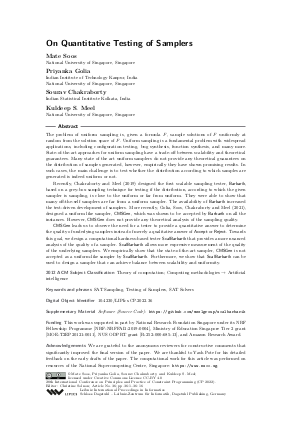LIPIcs.CP.2022.36.pdf
- Filesize: 0.81 MB
- 16 pages

 Creative Commons Attribution 4.0 International license
Creative Commons Attribution 4.0 International license
























Feedback for Dagstuhl Publishing